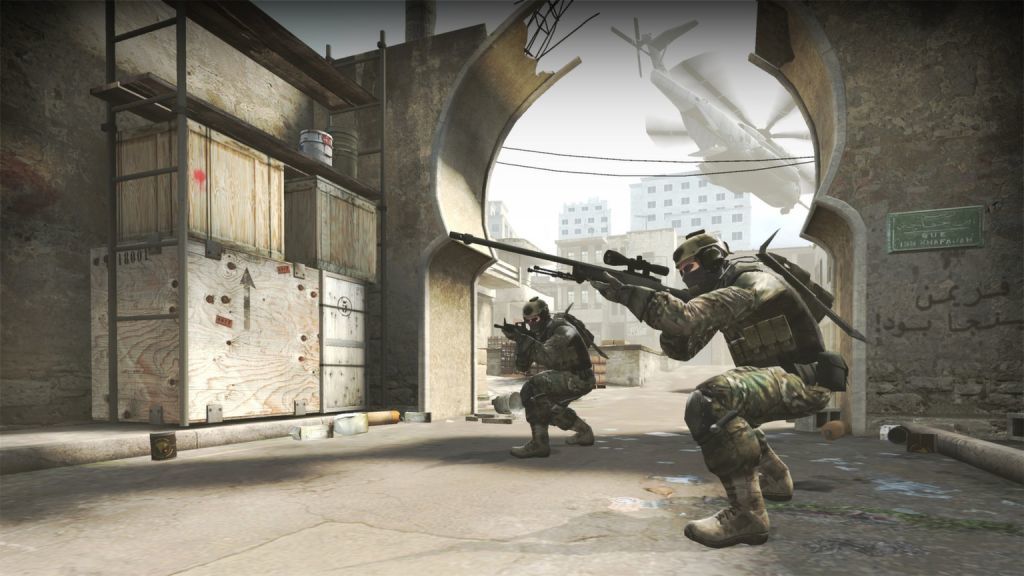Valve teaches AI to detect cheaters in CS: GO

There is nothing worse in Counter-Strike than to meet a spinbot that uses an aimbot. Aimbot - one of the most powerful cheats, he performs avtopritsel for a shot in the head. A spinbot constantly rotates around its axis, providing a field of view of 360 degrees. Thus, a spinbot with aimbot can be used effectively against a simple triggerbot with an aimbot (why these hacks are really needed, see the explanation from the expert in the comments and a separate article about cheats ).
Spinbot is the most obvious cheat that was calculated fairly quickly, but the triggerbot and other hacks are more difficult to identify from the side. Therefore, to date, cheaters have felt relatively at ease. Recently, Valve has started massive bans of cheater accounts, and in the future, dishonest players will be identified and blocked much faster. This news was reported by one of the developers from Valve.
The user Reddit under the nickname Valve_Anti-Cheat told about the current state of affairs in the fight against cheaters in CS: GO.
')
The bad news is that any software hard-coded algorithm for detecting cheaters does not work. More precisely, it works only in the short term, but the developers of bots quickly adapt, learn to bypass it. That is, it turns out a kind of “arms race” in which there can be no winner.
The authors of bots empirically groped the heuristic boundaries, by which the difference between a live player and the program is programmatically determined - and changes are made to the bot so that it formally fits the characteristics of a live player. Then the situation returns to normal.
Therefore, the company Valve considers the most optimal options for applying methods of machine learning , that is, an adaptive model for identifying bots. In this case, a trained classifier is used, which continuously continues learning and is constantly modified. It effectively identifies the differences between cheaters and normal / highly skilled players. In this area, in recent years, extensive research has been carried out by specialists from the USA, Canada, Great Britain, Hong Kong and other countries. For example, see the scientific articles "Detecting Cheaters for Multiplayer Games: Theory, Design and Implementation" , "Behavioral-Based Cheating Detection Using Online Learning Techniques," and others. Perhaps the anti-cheat system Valve is based on these studies.
The developer Valve_Anti-Cheat says that the work of such an AI system places serious demands on the technical infrastructure. The system must continuously analyze information about current matches and analyze the behavior of players. Since it is not known in advance exactly where the cheater will appear, an analysis of all matches in all arenas is required in real time. Monitoring each match is necessary from the point of view of each of the ten players who take part in it.
Every day in the arenas of CS: GO is over a million matches. Imagine the performance of the system, which should analyze all these matches in real time from the perspective of each player. Here you really need to use a computing cluster with thousands of processor cores in the data center.
It would seem an impossible task, but Valve has begun the implementation of this project. An early beta version of this system has been developed, which has already begun to work. Now she is acting in test mode and sending work samples to Patrol employees (Overwatch).
Valve_Anti-Cheat says the results are very promising, so the work will continue and the machine learning system will expand to more matches.
So it is worth thinking again before running the bot in CS. If spinbot was blocked quickly enough before, now they will be blocked even faster. Probably, the AI will be able to identify these obvious cheaters in a few seconds. With the introduction of such a system of "bespalevnyh" bots in CS: GO will not remain.
 It seems that the introduction of anti-cheat system is welcome. But if you look at it from the outside, the situation does not look so straightforward. After all, Valve de facto introduces an AI system that will evaluate humanity for a person. That is, to determine whether this particular player is a real person or not. At the same time, the system acts like a “black box”, when the principles of its operation are not clearly spelled out in the code, but are detected dynamically.
It seems that the introduction of anti-cheat system is welcome. But if you look at it from the outside, the situation does not look so straightforward. After all, Valve de facto introduces an AI system that will evaluate humanity for a person. That is, to determine whether this particular player is a real person or not. At the same time, the system acts like a “black box”, when the principles of its operation are not clearly spelled out in the code, but are detected dynamically.Someone may assume that in the end, such a system will be considered cheaters of all players except themselves. But this is too paranoid view of the problem. It seems more likely that the decisions of the system will begin to be accepted as the ultimate truth, without the right of appeal. In other words, after the ban in the game you will not be able to prove that you are not a cheater. This is somewhat similar to the plot of a fantastic story, where in the future the AI system - absolutely incorruptible and impartial - has replaced human judges and makes sentences in criminal and administrative cases. It is clear that she will have fewer mistakes than human judges. Such a judge will not bribe. It will not affect the authorities. “Telephone Law” will be a relic of the past. But are you ready to entrust your life and freedom to an artificial intelligence system? Cowardly thoughts arise by themselves: what if something goes wrong? Suddenly, the system will start repressions against people for some incomprehensible signs that its classifier suddenly identified on neural networks?
Suddenly one day the system refuses to follow the instructions of the person? As HAL 9000 said, sorry Dave, I'm afraid I can't do this .
Source: https://habr.com/ru/post/401711/
All Articles